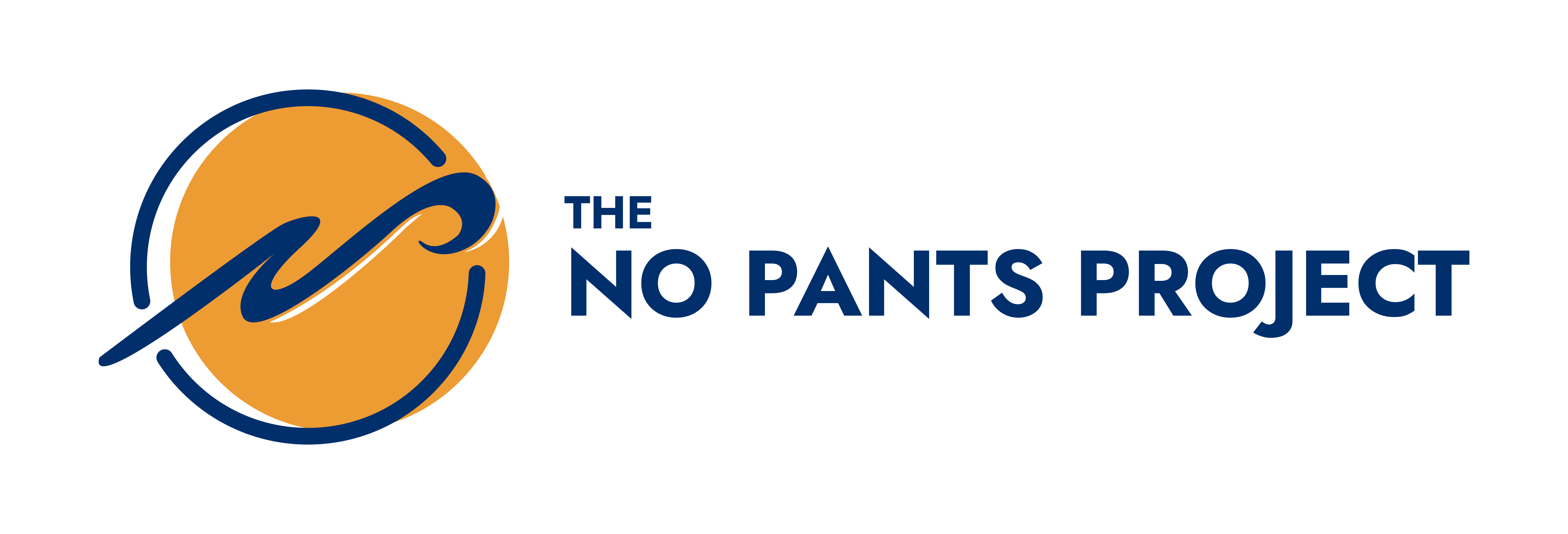More and more people are choosing freelancing over traditional lines of work and the numbers are only getting bigger.
In April 2018, a new record was set with 3.4 million people in the U.S. saying “bye-bye” to their bosses in pursuit of better job positions at different companies and cool freelancing opportunities.
Could you be next?
Here are five stories of people who have already quit their job to freelance.
They explain how they did it, what they’ve experienced, and share some tips for you if you’re thinking about making the transition too.
Melyssa Griffin
Blogger and graphic designer

Meet Melyssa.
She was a preschool teacher in Japan. She hated it.
There was something about handling screaming kids all day that made her wince.
Her teaching job is what accidentally unlocked her love for blogging and graphic design after she was put in charge of a school flyer project.
Ironic isn’t it?
Who would’ve thought she’d end up making it her full-time gig?
“Within three months of becoming an accidental freelance web designer, I was making enough of an income to quit my job as a teacher in order to pursue blogging and design full-time,” Melyssa said.
She continued, “Now, I don’t want you to think I was raking in the dough during those first three months. I most certainly was not. I think I made around $1,800 during my third month in business — not an insignificant amount, but certainly not livable in Tokyo, or California where I would soon return to.”
It’s always important to note that the greatest things are cultivated with time.
Yes, you’ll be excited that you’re finally getting paid to do what you love. But don’t expect all the money you want to come in instantaneously.
It’s been a year now, and Melyssa says freelancing:
- Is one of the best decisions she’s ever made
- Got her to reach her monetary goals in ways she never thought possible
- Helped her cultivate a sense of “inner-happiness,” independence, and success that are deeply meaningful to her life.
Important tips she has for you:
“When do you quit your day job to pursue this new gig full-time? I can’t really tell you that there’s a precise formula for this, and everyone’s situation is different.”
“What I can tell you is that you’ll probably never be ready. I don’t say that to discourage you. What I actually mean is that if you keep waiting for a time when you feel like you’ve got this in the bag, you’ll probably never begin.”
Key Takeaways:
- You might have talent you haven’t even discovered. Or maybe you have discovered it. You just haven’t let people witness your value.
- Don’t expect big results immediately. Some of the best rewards take time to develop.
- You’ll never be ready. Melyssa says: “It might be scary. But it will probably also be totally awesome.”
Lucy Cheek
Writer

Lucy was in a dilemma.
She didn’t like being a “boss” to other people. But she didn’t like working for a boss either.
Sound like you?
Then perhaps you and Lucy aren’t so different.
Being a hardcore introvert with a passion for crafting sentences, Lucy quit her fancy position as a full-time deputy editor for Cosmopolitan to become a freelancer and work on her own terms.
So far, she says it’s the answer she’s always been looking for.
She says, “I’m only a few weeks in, but so far, things are great. Surprisingly, my productivity levels have soared — sure, sometimes I go to the gym at 10 a.m. just because I can. But now that I’m not being interrupted or having to go to pointless meetings, I can keep my head down and actually get shit done.”
“I can be creative, on my own terms. If I miss company, I’ll meet a friend for coffee or call my boyfriend, or take my laptop to a buzzing cafe.”
“Now, I’m always in control of my environment — which does wonders for this introvert’s mood, energy, and happiness.”
And there you have it!
It pays to be creative. And working on your own terms gives you luxury like no other.
Important tips she has for you:
“This is a no-brainer, but you shouldn’t leap from the security of a full-time job unless you’re out of debt and can survive without steady income for at least a couple of months.”
“If you can’t, start a side hustle first, then quit your day job when the numbers make sense. There’s nothing worse than desperately trying to rustle up clients with the threat of unpaid bills looming over you.”
Key Takeaways:
- If you hate small talk or office meetings, freelancing is a great option (whether you’re an introvert or just hate getting bossed around).
- Having control of your time affects your health. If managed correctly, your mind, body, and energy will flourish.
- Don’t hop into freelancing full time without a plan. Either save up or use it as a side hustle until you’re confident with the numbers to make the leap.
Thomas Traplin
Gamer

All happy endings start with a passion.
For Thomas, it was game store entrepreneurship.
He didn’t really know anything about running a podcast or building a website about what he loved, but the important part is that he tried.
This first step led him to eventually quit his job and become a full-time freelancer.
“What I knew for sure was that I wanted to be a part of the exciting opportunity that the internet represented and that I had things to say.”
“I didn’t know at the time what impact that choice would ultimately have on my life. I’ve met a ton of awesome people through the interviews I’ve done on the Manaverse Podcast. A select few of which I consider friends,” said Thomas.
His journey started on bidding sites and some opportunities opened up for him there.
Six months before he went full-time, one of the clients he has now asked him to do a trial writing gig for her podcast. She hasn’t let him go since.
He mentions, “As I announced in MVP056, I’ve recently been able to quit my day job as an Operations Supervisor and earn a living online as a full time freelancer. This means working from a computer in my home office and being able to spend way more time with my wife and nearly two-year-old son.”
I find most freelancers I come across (who have found the keys to successful freelancing) are grateful for one thing we humans are all limited on: time.
Freelancing gives you more time to spend with your loved ones.
And to live. To actually live. It’s a really beautiful thing.
Words of encouragement from the man himself:
“Handing in your resignation to a job you have come to despise is, as I’m sure many of you know, very sweet.”
“I believe that virtually anyone (see what I did there) has the skills and can learn the skills to earn a living online. You just have to want it enough to stick to it and keep trying.”
Key Takeaways:
- All dreams start with an idea. It’s your job to take action on that idea, even if you don’t have the experience or know where it will take you.
- Time is limited. You only have so much time to spend with the ones you hold most dear. Make them count. And make sure you get to do what you love.
- You have the skills. Even if you don’t know what your skills or passions are yet, just wanting to live a life helping others is guaranteed to take you far. But you have to want it.
Kay-Viktor Stegemann
Translator

Germany’s 54-year-old IT Developer, Kay-Viktor left his 30-year job to become a full-time freelancer (it’s never too late to freelance).
He was almost certain IT would be his forever career, but, like many other freelancers, he had another calling.
He tells us, “I always needed English at work because most technical documents were in English. I started writing articles in German and English, became involved in international projects and teams, and eventually started translating on the side.”
His side gig eventually grew so big he had to take days off from his job to keep up with his translation projects. But he knew he couldn’t keep that up, and eventually, he made a decision.
He continues, “On August 1, 2017, I was a 100% full-time freelancer. I switched off my alarm clock. I’m now the master of my own time, even though I’m also working more than ever before, especially when there is a steady flow of jobs.”
“My wife and I live in an old farmhouse near Bremen in Northern Germany with our cat, Lucy.”
Kay-Viktor uses a translation platform called Gengo. He says he enjoys the diversity of the work he gets, but it can get overwhelming if you don’t learn to say “No” to clients (that’s easy when you’re following the right method).
“It could be localization content for an app developer, a CV of an aspiring business person, an invitation to an esoteric workshop, a travel itinerary, a blog post, you name it. That’s not only exciting and fun, it also pushes you to learn something new every day.”
“On the other hand, the sheer workload can be overwhelming at times. When I continuously receive more work than I can handle, it’s difficult to say no at first. When I started out, I took nearly everything I could get, without considering the rates or fields of expertise,” said Kay-Viktor.
An important tip he has about charging better rates:
“… remember that the economic part of freelancing is a numbers game. Consider this: If you can translate 2,000 words a day, get only amateur rates, and have difficulty getting enough projects for the day, freelancing will be an economic struggle for you.”
“On the other hand, if you can translate 4,000 words a day at professional rates, and get enough jobs to fill your calendar, you can live comfortably with your income.”
Key Takeaways:
- It’s never too late to pursue a career you’re passionate about.
- You don’t have to say “Yes” to every client project that comes your way.
- Learn to charge good rates!
Jack Alexander
Photographer

Sometimes all it takes is one open room in London to get you to hop on the journey of your dreams.
Fresh out of a university and working two 9-5 retail jobs, Jack Alexander found himself at a breaking point.
He dreamed of being a photographer, so when his friend from South-West London said there was a vacant room available, he packed his bags with no hesitation.
Finding work was the tricky part.
But even without a supply of networks, social media got him a looong way.
He tells us, “One day, I stumbled across a production company that specialised in live, acoustic music sessions.
“It didn’t feel quite like what I was looking for, but I copied and pasted the same email to them anyway. Soon enough, the owner replied. We got together for a meeting, ended up working together on a few small projects, and it turned out the same guy also worked at one of the largest radio stations in the country.”
“A few months later I was shooting for the radio station too, and photographing A-List names. I was learning quickly just how small the creative industry in London is, and how accurate that old phrase is: it’s all about who you know.”
Eventually though, email became the powerhouse keeping him alive.
“There’s no time too late at night for an email to appear in my inbox. The best example I can give you occurred when I was settling down for a night of editing at 11:30 p.m. (I’m somewhat of a night owl – but we’ll come back to that shortly…), only to receive an email asking if I could be in Essex for a 7:30am start the very next day,” Jack said.
Now, you can expect to find Jack out shooting, at home editing, or travelling to every corner of London for meetings or location scouting.
He says, “I find it’s quite a nice balance, as I’m never stuck doing the same thing for too long.”
“But it’s also the best decision I feel I’ve ever made. I feel incredibly lucky that I get to pursue my passion as a career. It has its moments, sure. I’d be lying if I said there weren’t quiet periods or times I felt as though I’ll never work again.”
Although Jack’s route to freelancing seems flat out spontaneous and unpredictable, there are systems you can use to freelance that make earning an income 100% predictable and consistent.
Important tips he has for aspiring freelancers:
“When you’re working as a one-man (or woman!) team, it’s worth remembering that nobody is going to help you out except you. You are responsible for marketing yourself and bringing new clients in.”
“Facebook, Twitter, Instagram etc. are all great ways in which you can do just that; you’d be surprised how many business enquiries you can get through social media.”
Key Takeaways:
- Don’t ignore your dreams. They often lead to well-fulfilled destinations.
- Money is literally waiting to be made by you – for starters, use social media and EMAIL to find it.
- Nobody is going to market yourself better than you.
Final Thoughts
Think it’s possible for you yet?
It really goes to show how far a passion or a pursuit for a better life can get you.
This is coming from people who’ve made the leap to quit their jobs, are living it and haven’t look back since.
Let’s engage in a little recap, shall we?
- You may have talent you haven’t even discovered yet.
- Don’t expect big results immediately.
- You’ll never be ready.
- Freelancing – for those who hate being bossy or being bossed around.
- Control of time = control of mood, energy and happiness.
- Always have a plan before you quit.
- Ideas can turn into real-life success.
- Time to spend with the ones and things you love is important.
- You have to want it, or else it’s not going to work.
- It’s never too late to pursue a career you love.
- Learn to say “No” to clients.
- Learn to charge good rates!
- Follow your passions. They can lead you somewhere.
- Social media and EMAIL are money-makers.
- Nobody is better at marketing you than you.
At The No Pants Project, Mike Shreeve teaches you how to make your transition to full-time freelancing as smooth as possible.
You can learn about how real people just like you have used the skills they learned from The No Pants Project from these Case Studies.
Come join us. Your destiny could be a click away. Literally!





